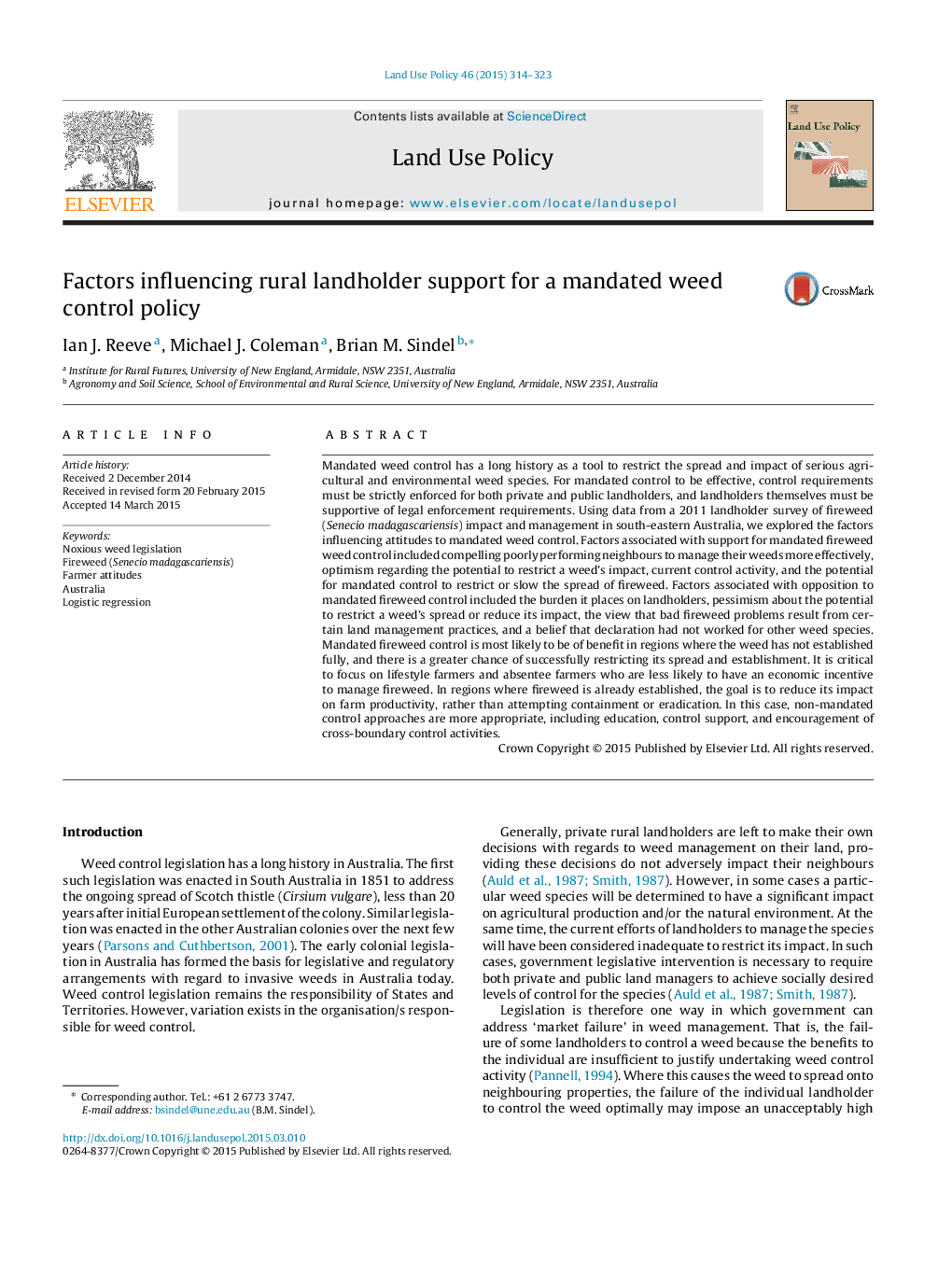| کد مقاله | کد نشریه | سال انتشار | مقاله انگلیسی | نسخه تمام متن |
|---|---|---|---|---|
| 6548244 | 160099 | 2015 | 10 صفحه PDF | دانلود رایگان |
عنوان انگلیسی مقاله ISI
Factors influencing rural landholder support for a mandated weed control policy
ترجمه فارسی عنوان
عوامل موثر بر حمایت از مالکان روستایی برای یک سیاست کنترل علف های هرز مجاز
دانلود مقاله + سفارش ترجمه
دانلود مقاله ISI انگلیسی
رایگان برای ایرانیان
موضوعات مرتبط
علوم زیستی و بیوفناوری
علوم کشاورزی و بیولوژیک
جنگلداری
چکیده انگلیسی
Mandated weed control has a long history as a tool to restrict the spread and impact of serious agricultural and environmental weed species. For mandated control to be effective, control requirements must be strictly enforced for both private and public landholders, and landholders themselves must be supportive of legal enforcement requirements. Using data from a 2011 landholder survey of fireweed (Senecio madagascariensis) impact and management in south-eastern Australia, we explored the factors influencing attitudes to mandated weed control. Factors associated with support for mandated fireweed weed control included compelling poorly performing neighbours to manage their weeds more effectively, optimism regarding the potential to restrict a weed's impact, current control activity, and the potential for mandated control to restrict or slow the spread of fireweed. Factors associated with opposition to mandated fireweed control included the burden it places on landholders, pessimism about the potential to restrict a weed's spread or reduce its impact, the view that bad fireweed problems result from certain land management practices, and a belief that declaration had not worked for other weed species. Mandated fireweed control is most likely to be of benefit in regions where the weed has not established fully, and there is a greater chance of successfully restricting its spread and establishment. It is critical to focus on lifestyle farmers and absentee farmers who are less likely to have an economic incentive to manage fireweed. In regions where fireweed is already established, the goal is to reduce its impact on farm productivity, rather than attempting containment or eradication. In this case, non-mandated control approaches are more appropriate, including education, control support, and encouragement of cross-boundary control activities.
ناشر
Database: Elsevier - ScienceDirect (ساینس دایرکت)
Journal: Land Use Policy - Volume 46, July 2015, Pages 314-323
Journal: Land Use Policy - Volume 46, July 2015, Pages 314-323
نویسندگان
Ian J. Reeve, Michael J. Coleman, Brian M. Sindel,
